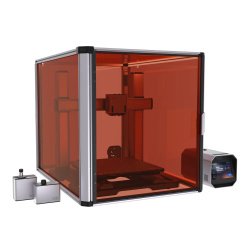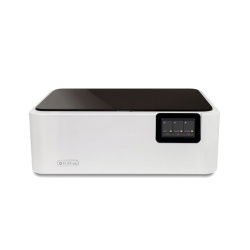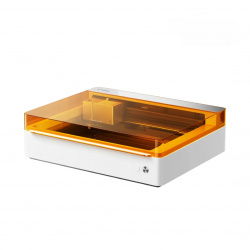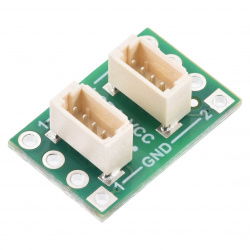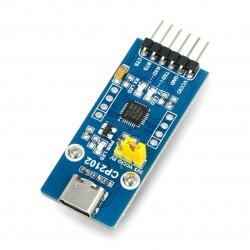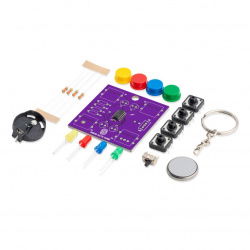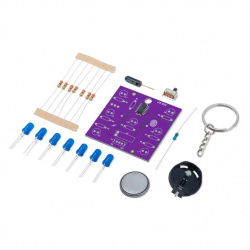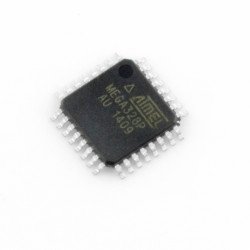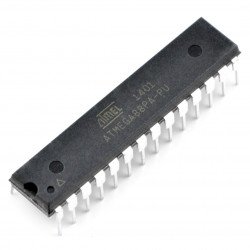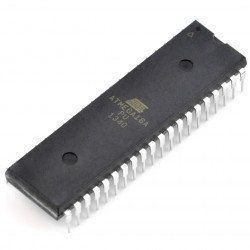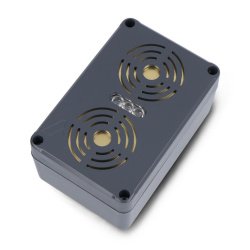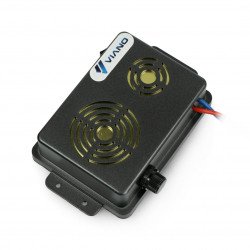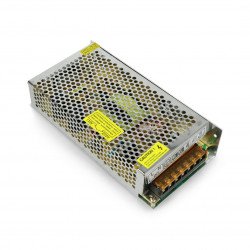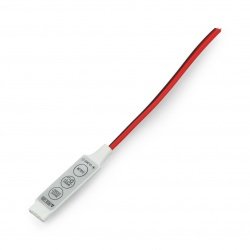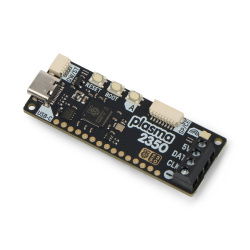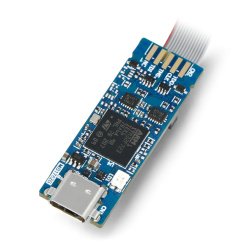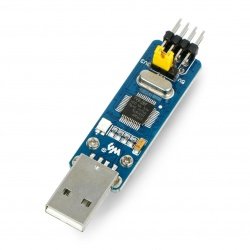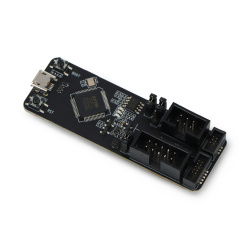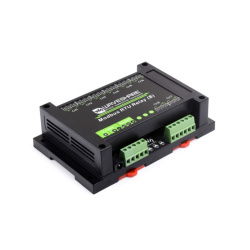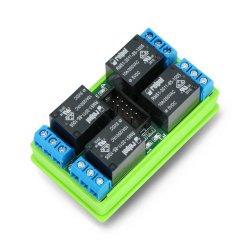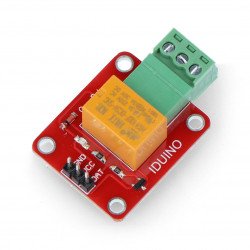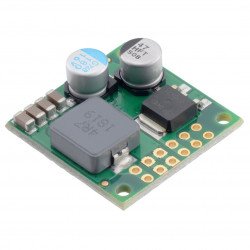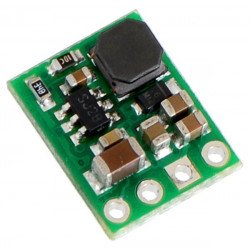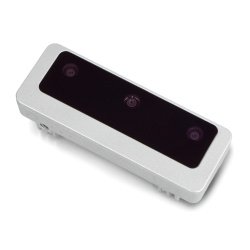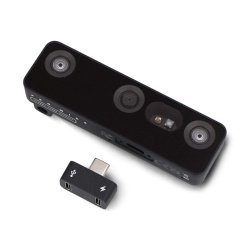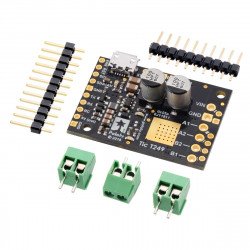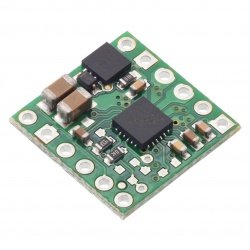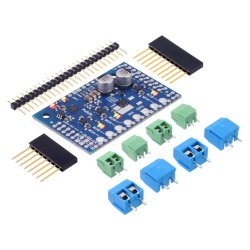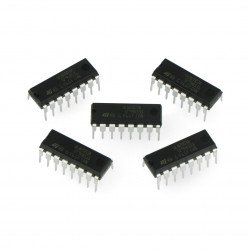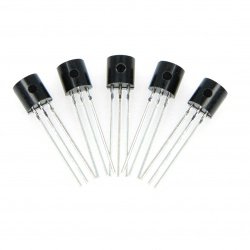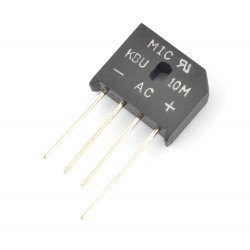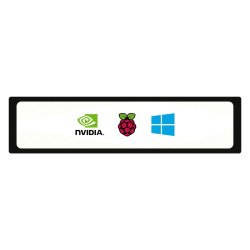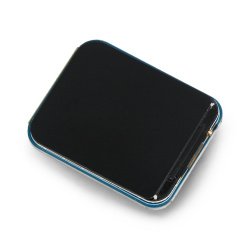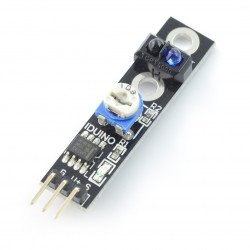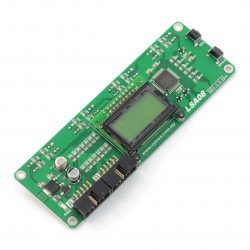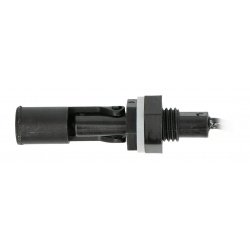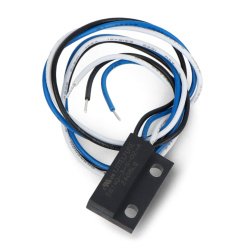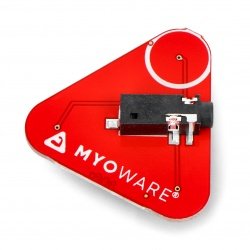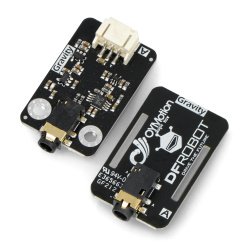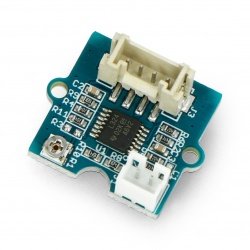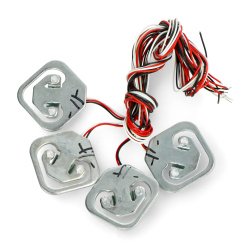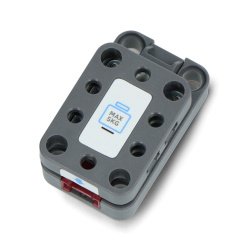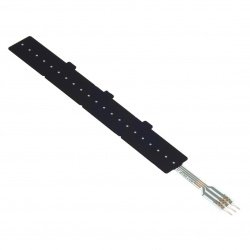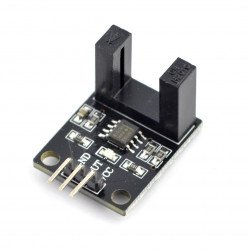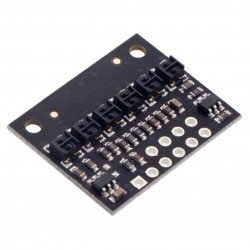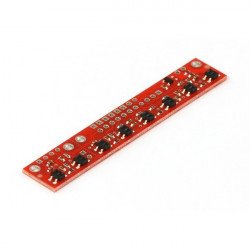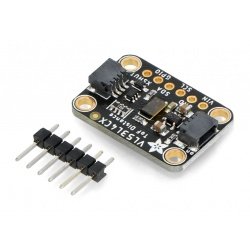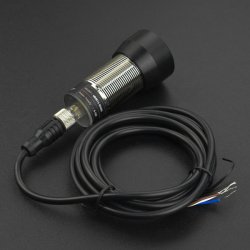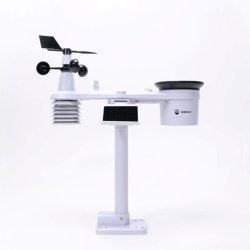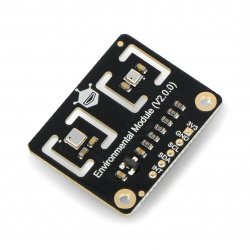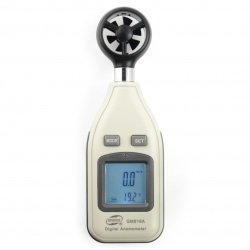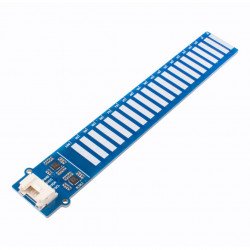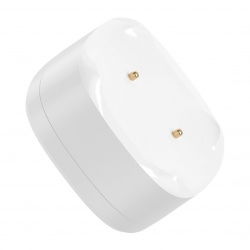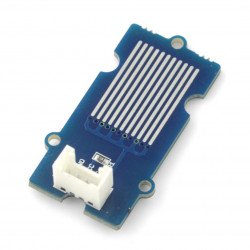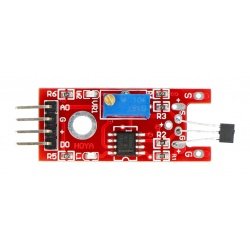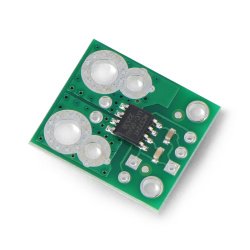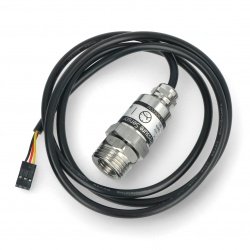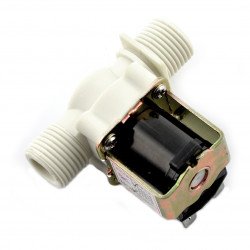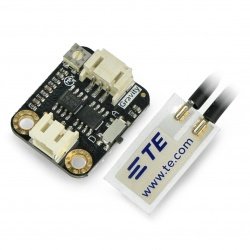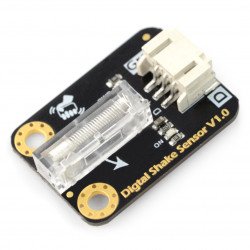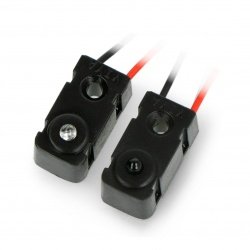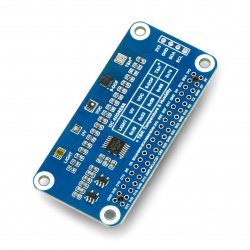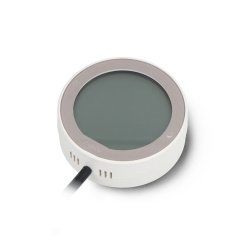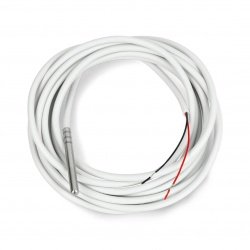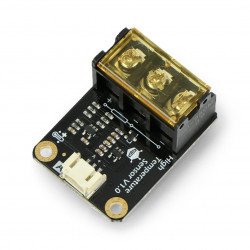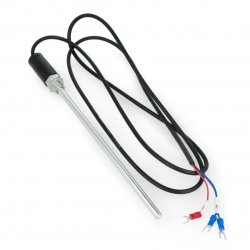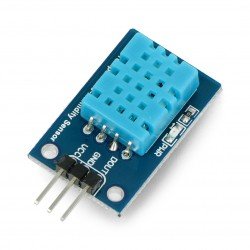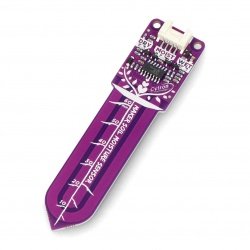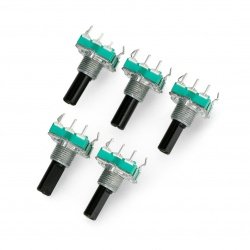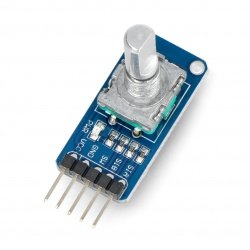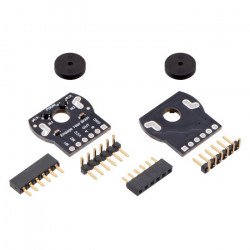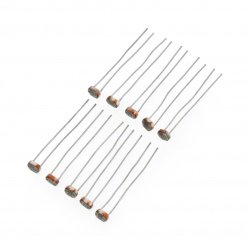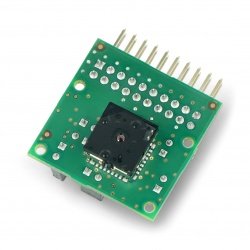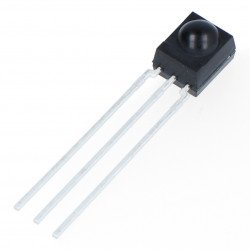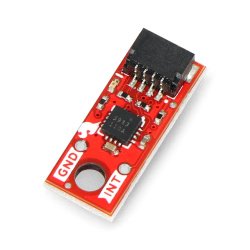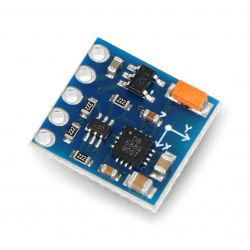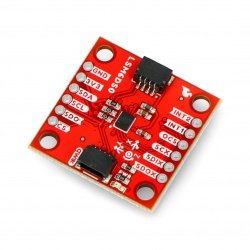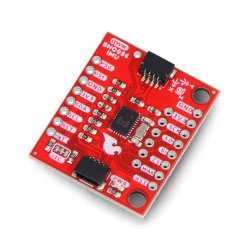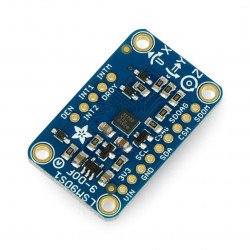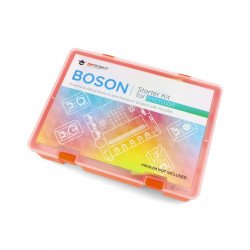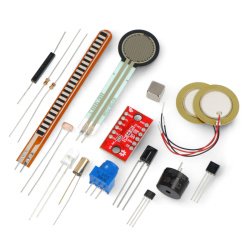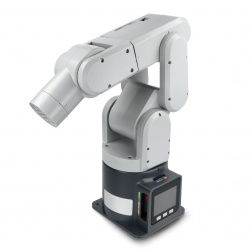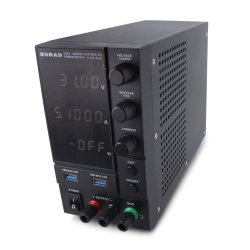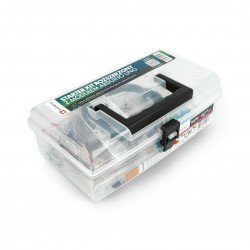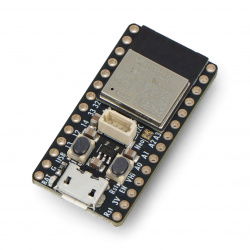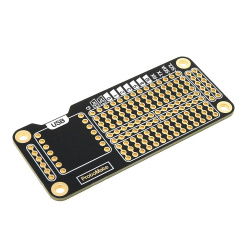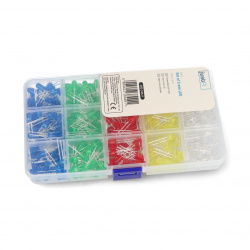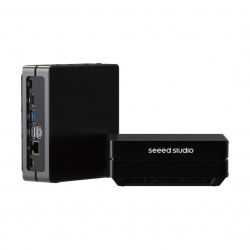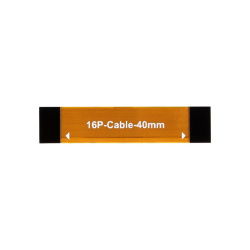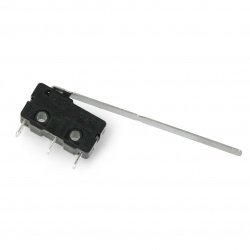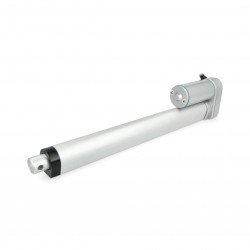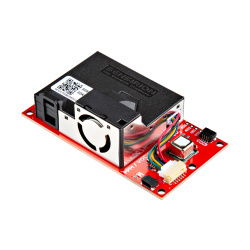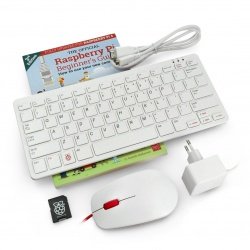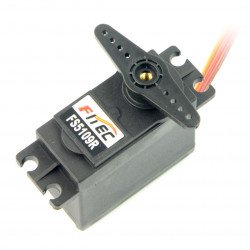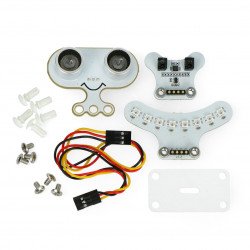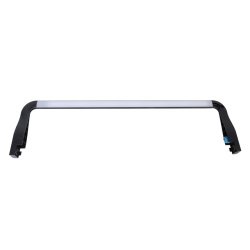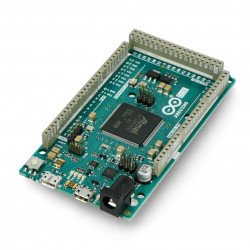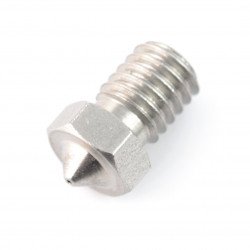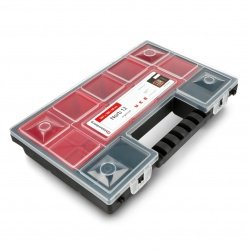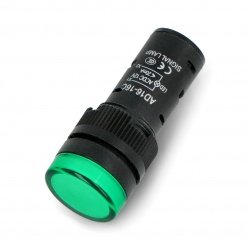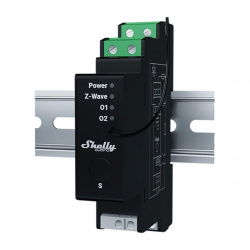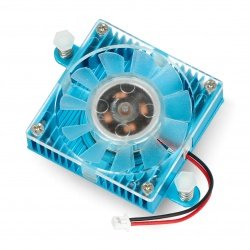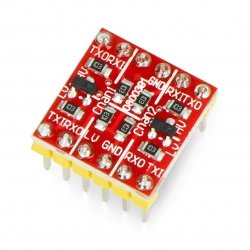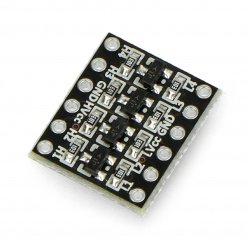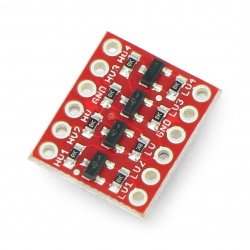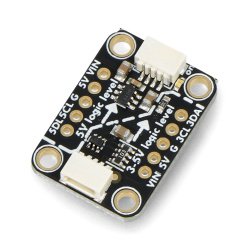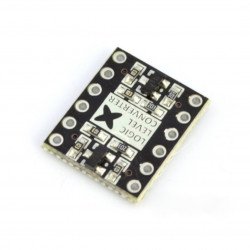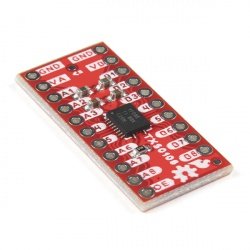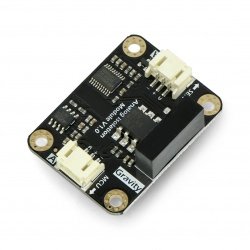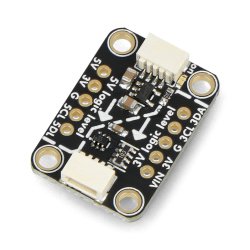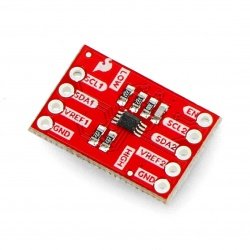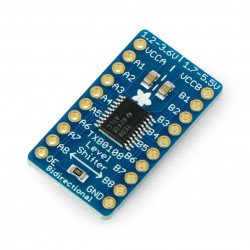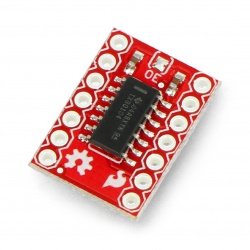The diversity of the currently used types of digital circuits and their manufacturing technology force the designers to work on various supply voltage levels. However, even if power supply circuits of a device make available all power sections necessary for its proper work, it does not mean that the system will work correctly. Properly selected voltage converters are still needed to ensure appropriate voltage levels of digital signals accepted by individual ICs.
Voltage converters
Logic level converter 3,3V / 5V - UART - Iduino ST1167
The module allows to exchange data between systems that use two popular voltages: 3.3 V and 5 V Ensures the connection of the UART interface.4-channel logic level converter
The module allows to exchange data between systems that use the most popular levels of voltage: 5 V <-> 3.3 V and 3.3 V <-> 1,8 V. It works in both directions simulatneously....8-channel bi-directional logic level converter
The module allows you to exchange data between systems that use the most popular voltages: from 3.3 V to 5.5 V and vice versa. Eight channels allow for connection of various...Logic level bi-directional converter, 4-channel - SparkFun BOB-12009
The module allows to exchange data between systems that use the most popular voltages levels: 5 V and 3.3 V and 1.8 V and 2.8 V. Works in both directions simultaneously. It has...Logic level bi-directional converter, 4-channel - Pololu 2595
Miniature (13 x 10 mm). the module allows to exchange data between systems that use the most popular voltage levels ranging from 1.5 V to 18 V and Vice versa. Four channels to...Level Booster Breakout - 3V - 5V voltage level converter - STEMMA QT / Qwiic - Adafruit 5649
Level Booster Breakout is a board produced by Adafruit, it has the form of a voltage level converter that allows you to obtain an output voltage of 5 V from an input voltage...Logic level converter 3,3V / 5V - I2C UART SPI
The module allows to exchange data between systems that use two popular voltages: 3.3 V and 5 V. It provides connection of interfaces: UART, SPI and I2C.TLV62569 - converter breakout 5,5V/3,3V 1,2A - Adafruit 4711
The converter is based on the TLV62569 chip . Enables you to get output voltage of 3.3 V. Input voltage range: 2.5 V to 5.5 V. It provides a continuous load current of...DFRobot Gravity - analog signal isolator
The module prevents the operation interference of the sensors through the insulation of the analog signal and providing an isolated power for sensors. It is supplied with the...Level Shifter Breakout - 5V - 3V voltage level converter - STEMMA QT / Qwiic - Adafruit 5637
Voltage level converter that allows you to obtain an output voltage of 3 V from an input voltage in the range of 3 V to 5 V. It has a built- in 3.3 V voltage stabilizer...Logic level converter I2C PCA9306 - SparkFun BOB-15439
The module allows bidirectional communication between circuits using different voltage levels for I2C and SMBus. PCA9306 converts voltages from lower range from 1.2 V to 3.3 V...TXB0108 - two-way, 8-channel logic converter - Adafruit 395
The module is based on a TXB0108 system, it allows you to exchange data between systems that use the most popular voltage levels: 3.3 V and 5V. It has eight channels, it...Logic level transmitter TXB0104 bi-directional, 4-channel - SparkFun BOB-11771
The module allows to exchange the data between systems that use the most popular voltage levels: from 1.2 V to 3.6 V for VCCA inputs, and from 1.65 V to 5.5 V for VCCB inputs....Pixel Boost module - 3.3V / 5V voltage buffer for WS2812B diodes
The module is used to control the WS2812B LEDs, in the case of a microcontroller running on voltage 3.3 V. It includes a buffer that allows you to convert voltages. Module...Voltage converter 3-5.5V to 3.3V 2A - TPS62827 - Adafruit 4920
Voltage converter equipped with TPS62827 chip. It allows to obtain from input voltage in the range of 3 V to 5.5 V an output value of 3 .3 V with a current of 2 A . It...See also
Logical levels, i.e. one and one are not equal
The theory of digital circuits in terms of methods for representing logical states is very simple. In the most commonly used so-called positive logic - zero means the low state (L), and the voltage equal to the supply voltage (e.g. 3.3 V or 5 V) corresponds to logical one, i.e. the high state (H). So much theory; the practice, as usual, is much more complex. Each digital circuit correctly interprets input voltages within the range specified by the manufacturer, and the same applies to output signals, which cannot exceed a certain narrow range during normal operation. However, if one system (e.g. a microcontroller) is powered by 5 V and the other by 3.3 V, it is necessary to use a voltage converter (also called a logic level converter), which will not only ensure correct communication between individual systems, but also protect the systems. with a lower supply voltage from potential damage from too high input voltages.
Types and parameters of logical level converters
The basic division of voltage converters is based on in which (how many) directions these elements can transmit digital signals. Many converters transmit digital signals only in a specific direction, although some designs are able to work properly regardless of which direction the information is transmitted (i.e. which of the systems is the transmitter and which is the receiver). This is how very simple but highly effective voltage converters based on low-power MOSFET transistors work. In addition to the direction of operation, the key parameters of each converter are: the number of channels, acceptable voltage levels on both sides, as well as the maximum frequency of transmitted signals and - in some cases - propagation times (i.e. the delay between the change of the signal at the output in relation to the corresponding change at the input of a given channel). ).
Voltage converters available at the Botland store
In this category you will find a number of very useful modules, perfect for both prototype systems and target solutions. All voltage converters are offered in the form of universal modules with convenient goldpin connectors (soldered or intended for self-assembly) - and ready for use with connection cables, available in our store in practical sets. In addition to converters designed to work with digital outputs and inputs, we also have specialized modules enabling I2C communication. These modules (e.g. PCA9306) take into account the specificity of the physical layer of the I2C interface and enable trouble-free, stable cooperation of systems with different supply voltages.
Different digital circuits require different supply voltages to function properly. Moreover, selected electronic designs require operation at various voltage levels. Voltage converters are devices that provide the appropriate voltage level for digital signals, which is necessary for the proper operation of integrated circuits . Lack of a properly matched converter may result in incorrect operation or even damage to the system.
Voltage converters are devices that are distinguished by their durability. The consumption process of the converter is strictly dependent on, among others, on the way it is used and the frequency of operation. The life of the converter is closely related to the quality of the components used in production. The higher quality they are, the longer the converter's lifespan should be (of course, this applies to the situation in which the device is operated in accordance with the manufacturer's recommendations).




